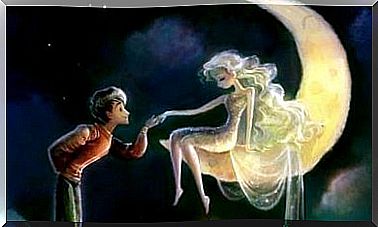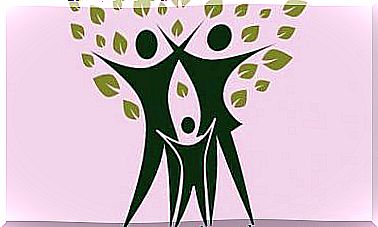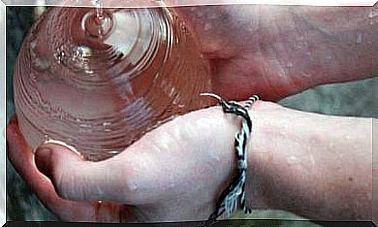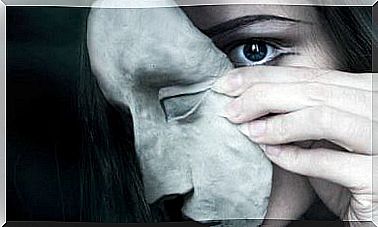The Five Keys To Happiness According To Carl Jung

Carl Jung’s keys to happiness are as true today as ever. The Swiss psychiatrist and father of analytical psychology was much more than just the man who left us concepts like archetypes and the collective unconscious.
Jung was an expert in the complex alchemy of human emotions, images, needs and the keys to happiness.
“ We are the origin of all evil to come, ” he once said in a Cold War interview. He also said, ” I am not what happened to me, I am what I choose to become .” He knew that man was capable of terrible things, but also greatness. According to him, you can only achieve hope and well-being through individualization.
That interesting concept also has a strong relationship with Jung’s concept of happiness. For him it was a process of becoming mentally free. You could live without fear and become a whole person with nothing in the shadows. Your subconscious would come up and you would have a clear sense of your goals.
This idea was without doubt the cornerstone of the thinking of the father of spiritual psychology. He also compiled a simple list of the things he thought could lead someone to happiness. He did this during a series of interviews collected in the book CG Jung Speaking (1987).
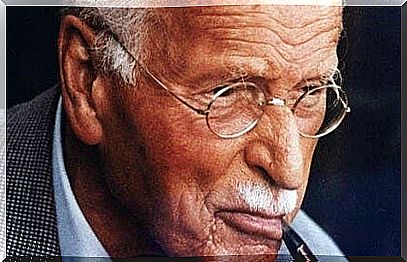
The keys to happiness according to Carl Jung
There are many lists of how to become happy. However, many of these fall into that trap of positivity that doesn’t actually go very deep. They are neither realistic nor offer concrete help. Carl Jung’s keys to happiness may also seem simplistic, but there is one thing that sets them apart.
The father of analytic psychology said that if you go blindly over these five things, you end up achieving the opposite of their goal.
What you need to do is have clear goals, but also be flexible, receptive and intuitive. As Jung would have said, you need to be able to see the synchronicities that can bring unexpected miracles into your life. Now let’s take a look at Jung’s five keys to happiness.
1. Good physical and mental health
You cannot have one without the other. In fact, Carl Jung believed that psychology was actually the only science that could save us as humans and measure our well-being.
However, he did not think that the sole purpose of psychology was to treat mental disorders and suffering. He also saw it as a means of fulfilling ourselves as people, clarifying our goals, and learning who we are. For him, that was one of the keys to happiness as much as physical wellness.
2. Good relationships
The quality of your relationships with other people is a pillar you will see in any happiness handbook. It is not good to disconnect life from other people. You need affection, friendship, security and love. You need to communicate, share, discover new horizons, learn how to care and be cared for, and create meaningful bonds.
3. The ability to perceive beauty in art and nature
Art is a human-made cultural product that is more than just an aesthetic creation. Every work of art also contains the essence of a person. They have put their emotions, creativity, idealism and innovation in things that started in their minds and in what Jung called the collective unconscious.
You must be able to appreciate everything that can elevate you, bring you pleasure and make you happy. This also applies to being able to appreciate nature. Our roots are in nature. Any creature and any place on our planet can give you excellent wisdom if you know where to look.

4. Believe in something, a religion and philosophy
For Carl Jung, there was no happiness without spirituality. Whether you followed a religious doctrine or a philosophical movement, he thought that believing “in something” could be a foundation for well-being.
It gives every experience a context and an origin, and makes you feel that there is more than the eye on this world. It gives you a sense of meaning and purpose.
5. A satisfying job
Jung talked a lot about how he wanted to be an archaeologist as a child. Life eventually led him to medicine and he then specialized in psychiatry.
He could still use his passion for history, anthropology and a desire to “dig” into the deepest parts of humanity. However, he did so through analytical psychology.
Whether or not you have a fulfilling job is not always in your hands. If you can make the right choices about your career path, with a clear sense of your goals, you will find it easier to find a fulfilling job.
Ultimately, happiness also means giving your best, and that’s easiest when you’re doing something you’re good at and passionate about.
Conclusion
Finally, Socrates once said that in order to find happiness you have to descend into the depths of yourself. In a sense, that’s not so different from what Jung argued for. It’s about becoming aware of your inner voice. Once you’ve done that, you’ll feel free and able to shape the life you want to live.
